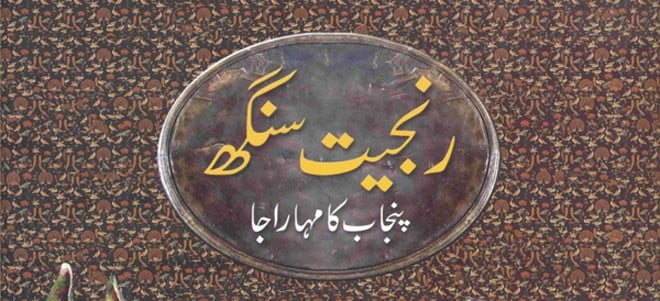
Urdu translation of Khushwat Singh’s Ranjit Singh: Maharaja of Punjab will bring Punjab’s history to a wider section of population

Translation is a tedious job that can never be perfect because of the difference of cultures associated with different languages. But in Khushwant Singh, we see a certain balance; his writings in English do not let you feel cut off from your culture and history.
Urdu translation of his book Ranjit Singh: Maharaja of Punjab by Zubair Qureshi, a journalist of Seraiki origin, does away with the hate simmering in what is now known as southern Punjab against Takht Lahore. Najeeba Arif, chairperson of Urdu Department, International Islamic University Islamabad (IIUI), has pointed out that by translating Ranjit Singh: Maharaja of Punjab, Qureshi has proved that he believes in building bridges and not walls. It is about time these walls of hatred were brought down.
One of the most modern religions, Sikhism, started off as a means for its followers to be at peace. Khushwant mentioned that its founder Guru Nanak did not discriminate between mosque and temple and gave a message of universal peace. However, the sword of some Mughal rulers, who were ready to use religion as a means to extend their dynastic rule, fell on key leaders of Sikhism.
Ranjit shot to fame in 1797 when he defeated Shah Zaman of Afghanistan. Zaman revved up religious fervour to pitch Afghans against Sikhs and drew a large army all the way from Afghanistan down to Lahore. His army killed local population, drawing no religious line between Muslims and non-Muslims. But ultimately, Ranjit’s army succeeded in driving them out of Lahore.
After that, all the grandsons of Abdali were consigned only to look at Punjab with envious looks but could not paw the region. Prof Dr Sajid Awan, Director National Institute of History and Culture, Quaid-e-Azam University (QAU), described this phenomenon hence: "Punjab and Sindh always stood as impassable walls between all the invaders of Hind. They even defeated Alexander the Great. Little is known of the fact that 13 of Gaznavi’s 17 attacks on Hind were blocked in Punjab. The invaders who succeeded in crossing Punjab would then face big resistance in Panipat."
Interesting is the tale of Ranjit’s annexation of Kashmir. In this adventure, he was also fired up by the desire to take Koh-e-Noor. Afghan warrior Zaman’s brother Shuja was jailed in Kashmir by one of their family members and his wife Wafa Begum, then subject of Lahore Darbar, promised Ranjit to give him this biggest diamond of that time if he rescued Shuja. However, after victory in Kashmir and recovery of Shuja, it was not without hard negotiations that Ranjit got the diamond.
After Kashmir, it was smooth sailing to Peshawar. British Raj was thriving parallel to Lahore Darbar across River Ravi. Though the two had a pact of non-interference in each other’s territories, they were waist-deep in conspiracies against each other.
Praised for promoting education that some say was on a par with British standards in his regime and respecting teachings of all religions, the Maharaja died in 1839 of multiple diseases caused by excessive use of alcohol and hashish. Burnt alive on his pyre were his four wives and seven concubines. So much for the claims of education and openness.
Khushwant’s account of Ranjit’s takeover of Multan and the killing of Nawab Muzaffar, an Afghan ruler of Multan, is in contradiction to what Sherbaz Mazari described in his A Journey to Disillusionment. For Mazari, Muzaffar was the hero and for Khushwant, Ranjit was a kind-hearted man who visited Muzaffar’s grave when he entered Multan.
If not in the past, a sense of unity among the people of this region is highly desirable at present if they don’t want to be known by the future historians as a people that cut one another down after no one in Afghanistan was able to gather courage to do the job.